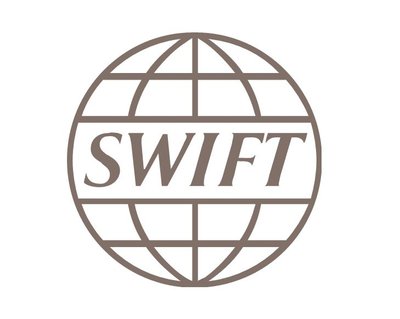 |
HONG KONG, Nov. 23, 2016 /PRNewswire/ -- Since the launch of the first SWIFT RMB Tracker in November 2011, the RMB has shown stellar growth for payments, whilst RMB usage by value in traditional trade finance -- letters of credit and collections -- has been decreasing since 2014. The Chinese currency is now the third-most-active currency in trade finance, after the euro, with a share of 4.61%. Three years ago, the RMB was ranked #2 in trade finance with a share of 8.66%. Since October 2013, the trade finance values in RMB have decreased by 66%, whilst trade finance across all currencies decreased in value by 35%.
"The general slowdown of the Chinese and world economies over the past few years has impacted global trade growth across all currencies, not just the RMB," says Michael Moon, Head of Payments Markets, Asia Pacific, SWIFT. "For example, commodities trade growth has been declining as evidenced by the reduction of documentary trade. On a positive note, the inclusion of the RMB in the Special Drawing Right (SDR)[1] basket should generate further trust and confidence in the RMB currency and support further RMB internationalisation."
In terms of international payments, compared to September 2016, the RMB has dropped one position to #6 in the currency rankings for international payments, with a share of 1.67%. This month's decrease is likely due to seasonal effects following the Golden Week holiday in China in October. RMB payments value decreased by 22.44% compared to September 2016, whilst in general all payments currencies decreased by only 5.96%.
About SWIFT and RMB Internationalisation
Since 2010, SWIFT has actively supported its customers and the financial industry regarding RMB internationalisation through various publications and reports. Through its Business Intelligence Solutions team, SWIFT publishes key adoption statistics in the RMB Tracker, insights on the implications of RMB internationalisation, perspectives on RMB clearing and offshore clearing guidelines, supports bank's commercial RMB product launches and provides in-depth analysis and business intelligence, as well as engaging with offshore clearing centres and the Chinese financial community to support the further internationalisation of the RMB.
The SWIFT network fully supports global RMB transactions, and its messaging services enable Chinese character transportation via Chinese Commercial Code (CCC) in FIN or via Chinese characters in MX (ISO 20022 messages). It offers a suite of dedicated RMB business intelligence products and services to support financial institutions and corporates. In addition, SWIFT collaborates with the community to publish the Offshore and Cross-Border RMB Best Practice Guidelines, which facilitate standardised RMB back office operations.
Please click here for more information about RMB Internationalisation or join our new 'Business Intelligence Transaction Banking' LinkedIn group.
For more information, visit www.swift.com.
About SWIFT
SWIFT is a global member-owned cooperative and the world's leading provider of secure financial messaging services.
We provide our community with a platform for messaging and standards for communicating, and we offer products and services to facilitate access and integration, identification, analysis and financial crime compliance.
Our messaging platform, products and services connect more than 11,000 banking and securities organisations, market infrastructures and corporate customers in more than 200 countries and territories, enabling them to communicate securely and exchange standardised financial messages in a reliable way. As their trusted provider, we facilitate global and local financial flows, support trade and commerce all around the world; we relentlessly pursue operational excellence and continually seek ways to lower costs, reduce risks and eliminate operational inefficiencies.
Headquartered in Belgium, SWIFT's international governance and oversight reinforces the neutral, global character of its cooperative structure. SWIFT's global office network ensures an active presence in all the major financial centres.
For more information, visit www.swift.com or follow us on Twitter: @swiftcommunity and LinkedIn: SWIFT
Contacts:
Cognito
swift@cognitomedia.com
+44 (0)20 7426 9400
Disclaimer
SWIFT does not guarantee the fitness for purpose, completeness, or accuracy of the RMB Tracker, and reserves the right to rectify past RMB Tracker data. SWIFT provides the RMB Tracker on an 'as is' basis, and for information purposes only. As a mere informative publication, the RMB Tracker is not meant to provide any recommendation or advice. Any person consulting the RMB Tracker remains solely and fully responsible for all decisions based, in full or in part, on RMB Tracker data. SWIFT disclaims all liability regarding a person's use of the RMB Tracker. The RMB Tracker is a SWIFT publication.
SWIFT © 2016. All rights reserved.
[1] The SDR is an international reserve asset, created by the IMF in 1969 to supplement its member countries' official reserves. As of March 2016, 204.1 billion SDRs (equivalent to about $285 billion) had been created and allocated to members. SDRs can be exchanged for freely usable currencies. The value of the SDR is based on a basket of five major currencies -- the U.S. dollar, euro, the Chinese renminbi (RMB), the Japanese yen, and pound sterling -- as of October 1, 2016. Source: International Monetary Fund.
Photo - http://photos.prnasia.com/prnh/20161122/8521607628-a
Photo - http://photos.prnasia.com/prnh/20161122/8521607628-b
Logo - http://photos.prnasia.com/prnh/20160127/8521600559Logo